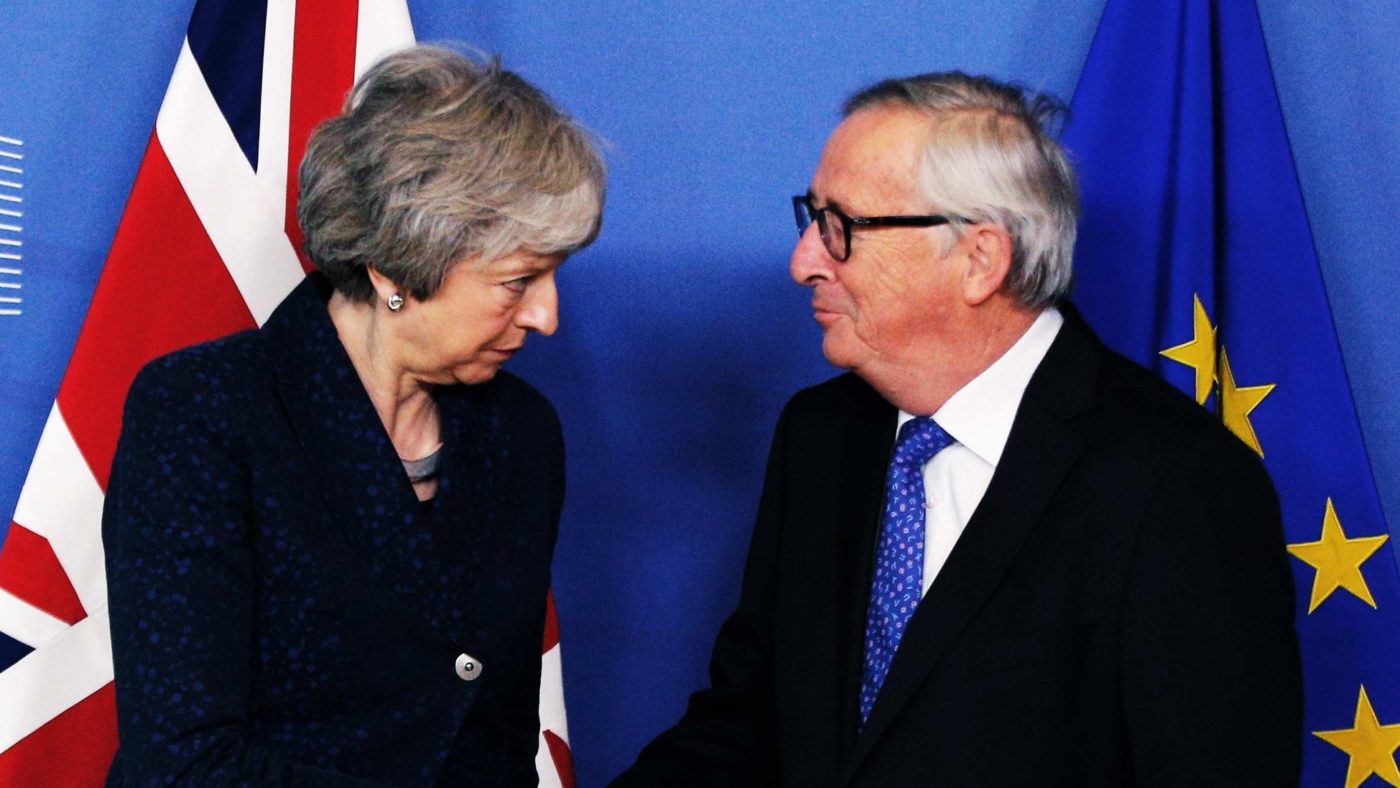“In a negotiation, you’re not going to get everything you want. Why not just accept the Withdrawal Agreement and finally get Brexit over the line? Otherwise you risk losing it entirely.”
The above quotation is imaginary. But the sentiment is real. Notable journalists, MPs, think-tankers and some Brexit-supporting conservative commentators are now convinced that we intransigent Brexiteers are inflexible extremists. That we are so committed to our utopian dream of a clean break from the EU, that we are willing to let the perfect be the enemy of the good, and that we are destroying the project that some of us campaigned for.
Wrong. Wrong. Wrong. Let me explain why.
As Bruno Prior put it on Twitter this week, for many of us, strident opposition to the Withdrawal Agreement is not a sign of our extremism, but our initial moderation.
Lots of us (and I don’t pretend to speak for all Brexiteers here) did not see Brexit as a end in itself – as a cause worthy of meeting whatever the cost – but as a means to an end. Far from being an ideological, starry-eyed commitment to British democracy (a view indeed held by many other Brexiteers), Brexit for my tribe was a decision we laboured over for a good while, considering the advantages and disadvantages of leaving the EU’s political institutions, and based on an analysis of what we thought economically possible outside.
For those of us who judged the issue on the basis of pros and cons, costs and benefits, opportunities and threats, it’s perfectly logical that some Brexits would be considered less desirable than remaining. And they are. In my view, the Withdrawal Agreement risks a long-term Brexit worse than our continued EU membership.
The deal proposed by Theresa May, largely due to the indefinite backstop provision and the way it prejudices the future relationship, could turn our future partnership into a Northern Ireland-ceding, free trade opportunity-destroying, regulation-entrenching mess.
Stripped of the return of powers where we believe genuine net improvements could be made to the economy, not least trade and some regulatory controls, we ask: what is the point of Brexiting? When Theresa May says that we must agree to the withdrawal agreement or risk losing Brexit entirely, to us this is therefore (as Andrew Lilico has said) “no threat at all”.
This doesn’t mean that we’d prefer to Remain. Brexit ignited a belief in a possible better long-term future and many of us are still determined to grasp it. But it does mean that we will oppose the withdrawal agreement without meaningful legal change. No assurances on the backstop that aren’t worth the paper they are written will alter that stance. As long as it is there in the text, our judgment is a future bleaker than we had before.
The same goes for Jeremy Corbyn’s demands for a much softer Brexit. One of the key reasons many of us object to the backstop is because it keeps us in the EU’s customs territory – bound by its tariffs, unable to cut free trade deals round the world, and with a diminished role at the World Trade Organisation. For many of us, a permanent customs union as a “solution” to the indefinite backstop is akin to declaring amputation a solution to an indefinite impairment of our leg. Promising the long-term solution we do not want as a means of avoiding the unending provision we do not like is going to convince nobody. And from a political perspective, my expectation is that a sordid deal with Corbyn would tear the Conservative party in two along these lines, and guarantee a socialist PM.
So what would be enough to secure the support of someone like me for a deal before March 29th? A time-limit or a unilateral exit mechanism would go a long way to allaying fears, especially if coupled with revising the political declaration to remove text saying the future relationship would build on the backstop customs arrangements.
Even better would be cooperation to minimise disruption at the border while moving to a third-country status more directly, a la the Malthouse Compromise. In fact, any agreement whereby a future democratically-elected Conservative government could, through legislation, shift the relationship in a direction which allowed us to explore the benefits of leaving would probably be enough.
But, for now, the EU appears to be ruling out these options, as is their right. So those of us who think Brexit only worth it with certain policy freedoms and within particular institutional frameworks will keep looking for other avenues to getting to the long-term destination we desire. Whether that be no deal and then a future trade negotiation, a new party or government that would extricate us from any bad deal, or an EU softening on the backstop remains to be seen.
You might disagree with our judgment on the potential benefits, or on the politics of getting there. But our position is based on moderation of what we think will be better for the UK over the long-term. The real extremists are those who accept Brexit at any price.
CapX depends on the generosity of its readers. If you value what we do, please consider making a donation.


